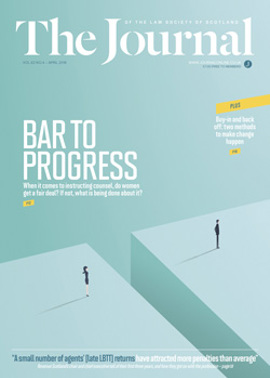Tax changes to termination payments
From 6 April 2018, the way that termination payments are taxed on cessation of employment is changed. Finance (No 2) Act 2017 amends chapter 3 of part 6 of the Income Tax (Earnings and Pensions) Act 2003 for all payments made in connection with any employment terminated on or after that date. The changes primarily relate to payments in lieu of notice (PILONs) and employer’s national insurance contributions (NICs), and are intended to make the process of taxing termination payments both clearer and fairer. However, the changes could potentially result in increased tax liabilities for both employees and employers.
Previous rules
Under the pre-6 April 2018 rules, the first £30,000 of a payment made in connection with the termination of employment is tax free, provided it is not otherwise taxable as earnings. Any excess over this amount is subject to income tax and NICs in the normal way.
Where a PILON forms part of the termination payment, the pre-6 April 2018 tax rules distinguish between PILONs paid pursuant to a contractual provisionand those paid otherwise than in accordance with a contractual provision. A PILON
that is paid pursuant to an express or implied contractual provision is treated as subject to income tax and NICs, whereas those which are not so paid will fall within the £30,000 exemption, as set out above.
Rules as of 6 April 2018
Timing of application of new rules. It was initially unclear whether the new rules would apply only when the employment terminated on or after 6 April 2018, or whether they would also apply where the employment terminated before 6 April but the termination payment was made after that date. HMRC has now confirmed that the new rules will only apply to payments received on or after 6 April 2018 in circumstances where the employment is also ended on or after that date. Therefore, payments made pursuant to any terminations taking place on or before 5 April 2018 will be taxed under the old rules, irrespective of the date the termination payment is made.
Contractual and non-contractual PILONs. Under the new rules, the distinction between contractual and non-contractual PILONs is likely to be eroded to a certain degree, due to the introduction of the concept of “post-employment notice pay” or “PENP”. This change requires employers to calculate the part of the termination payment that reflects the earnings the employee would have received had their notice period been worked in full. This portion of the termination payment is the PENP and is fully taxable as earnings.
Consequently, from 6 April 2018, contractual PILONs will remain fully taxable, while non-contractual PILONs will become taxable to the extent that the termination payment is a payment in lieu of the employee’s base salary.
Where the payment is more than a payment in lieu of base salary (e.g. where a portion of the payment represents the value of lost employee benefits), only the PENP amount will be taxable and the £30,000 exemption can apply to the remaining amount.
Other termination payments. All other termination payments, i.e. those that are not PENP or PILONs, will continue to fall within the £30,000 termination payments exemption. Any payments made in excess of £30,000 will be subject to income tax.
In this issue
- Fair instructions?
- The peasants have no bread
- Bad weather – adverse consequences?
- Defending children’s human rights in Scots law
- Scottish income tax – where are we now?
- Appreciation: Professor Emeritus Alexander John ("Alastair") McDonald
- Reading for pleasure
- Opinion: Gordon Addison
- Book reviews
- Profile: Paul Mosson
- President's column
- RoS welcomes new Keeper
- People on the move
- Fair instructions? (1)
- Law: not just a profession, but also a business
- Buying in and backing off
- Tax and the common touch
- Needs of the user
- Where did the money go?
- Five FOI tips every lawyer should know
- AI – the legal and ethical minefield
- Too long, too long?
- Times still a-changin' in '18
- An infrastructure levy for Scotland
- Tax changes to termination payments
- GDPR and the cloud
- Tide runs for lenders
- Passing on a pension to the right person
- Know your FTAs
- Scots to co-host ICW in Toronto
- Office of the Public Guardian: EPOAR and more
- Public policy highlights
- Our survey said...
- Q & A corner
- A profit without honour
- Appreciation: Professor Emeritus Alexander John ("Alastair") McDonald WS
- Ask Ash
- ASPIC finds its feet
- Pushing for change






